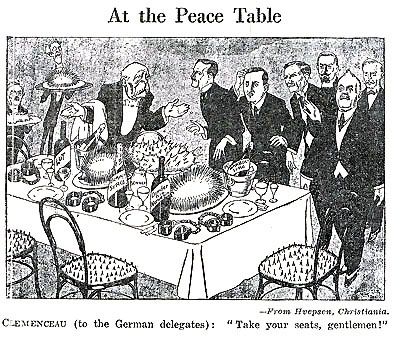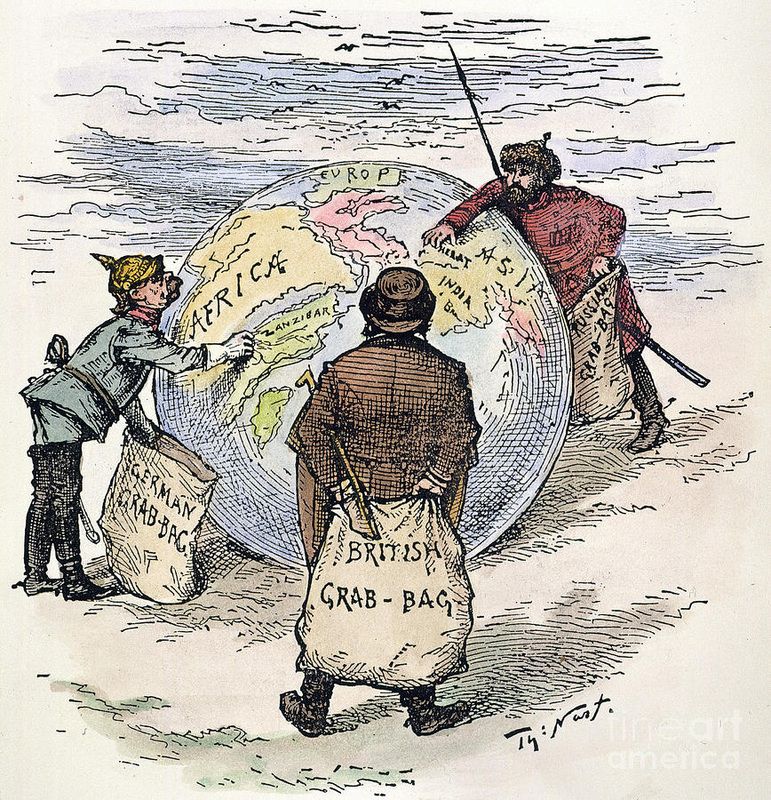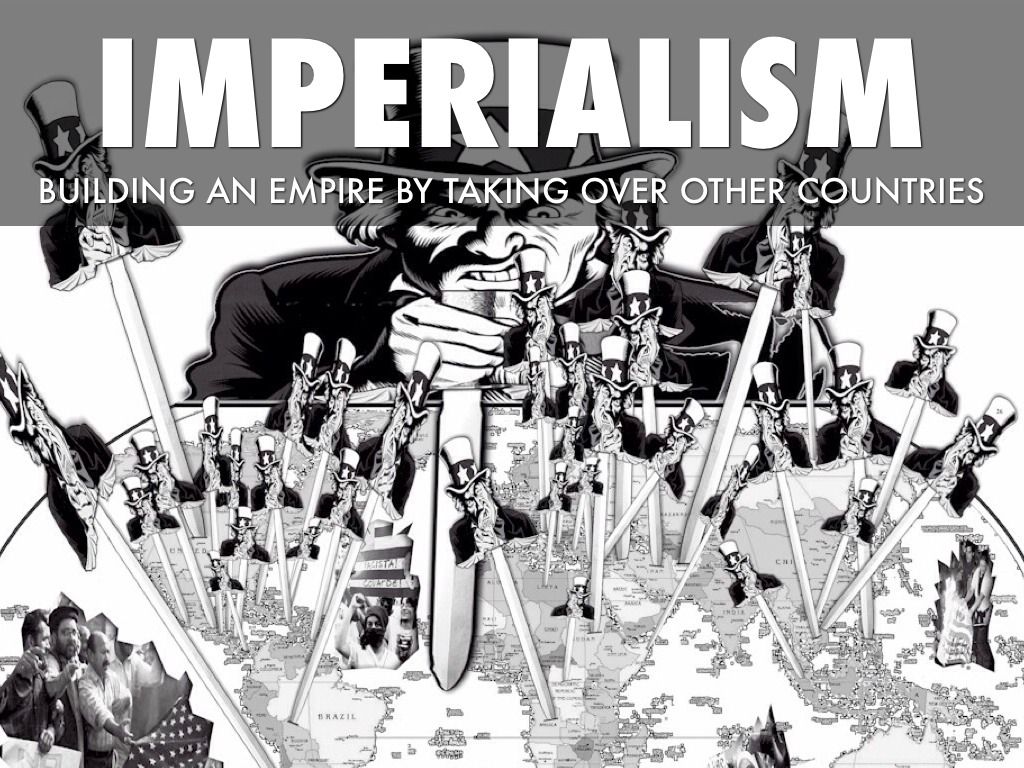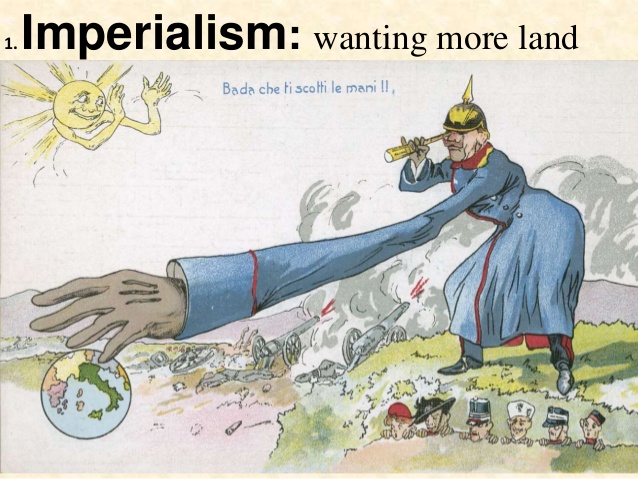Hypocritical Fiction.
A Vesuvius of Vituperation.
Even the Japanese Take Up the Cry.
Special to The Great War Project
(20 March) In Pars, President Wilson “makes a public announcement that the League of Nations covenant would not be detached from the peace treaty, and persuaded a plenary session of the peace conference to ratify that stance.”
So writes historian Thomas Fleming. And with that, imperialism raises its ugly head. The Allies turn their attention to carving up the spoils, the remains of the now vanished Austro-Hungarian empire, its colonies around the world, as well as the territories in the Middle East of the collapsed Ottoman Empire.
Events at the peace conference in Paris are making it difficult for Wilson to hew closely to the Fourteen Points, the principals he espoused in his famous Fourteen Points speech during the war.
“So began the game,” Fleming writes, “of breaking Wilson’s resistance to the Europeans’ version of peace.”
Tensions at the negotiating table are high. Wilson clings to his principles, including self-determination, especially on the part of smaller nations.
But the Allied victors of the war are having none of it.
The British make the first move to challenge self-determination. “A stunned Wilson resisted at first,” reports Fleming. “but he found himself on shaky ground. The League and the Fourteen Points called for a disarmament program.”
Next French prime minister Georges Clemenceau begins making “outrageous demands on Germany.” Eventually Wilson agrees to French occupation of the Rhineland,” in Western Germany, and the German coal mines, in the Saar, “where 650,000 Germans have lived for a thousand years.” This is compensation for the French coal mines the Germans destroyed during the war.
“The Italians soon got into the act,” Fleming reports, “now insisting on Fiume (at the head of the Adriatic) as a city they must have although the acquisition would deprive the new nation of Yugoslavia of its only deep-water port.” Wilson is appalled.
“He ignored them all and many more, and asked the Italians to exhibit to the newly liberated peoples across the Adriatic that noblest quality of greatness, the preference for justice over interest.”
“A Vesuvius of vituperation descended on Wilson, from the Alps to Sicily.”
Even in the United States, the Italian language newspapers took up the anti-Wilson cry.
Next it is the Japanese who “abandoned all pretense to idealism, as everyone else was doing.” They demand the Big Four’s approval of their takeover of substantial territories in eastern China and the port of Tsingtao.”
“Here was imperialism at its most naked.
Neither China, the nation that possessed the territory, nor the twenty million Chinese who lived there were to be seriously consulted, although the Japanese claimed that the pathetically weak Chinese government had given its approval.”
To back themselves up, the Japanese flourished the secret treaty they had signed with the British and French in 1917, promising all the Pacific islands colonized by the Germans north of the equator.
And so it goes: Imperialism at its most naked. At the peace table in Paris.
What one historian calls hypocritical fiction.
